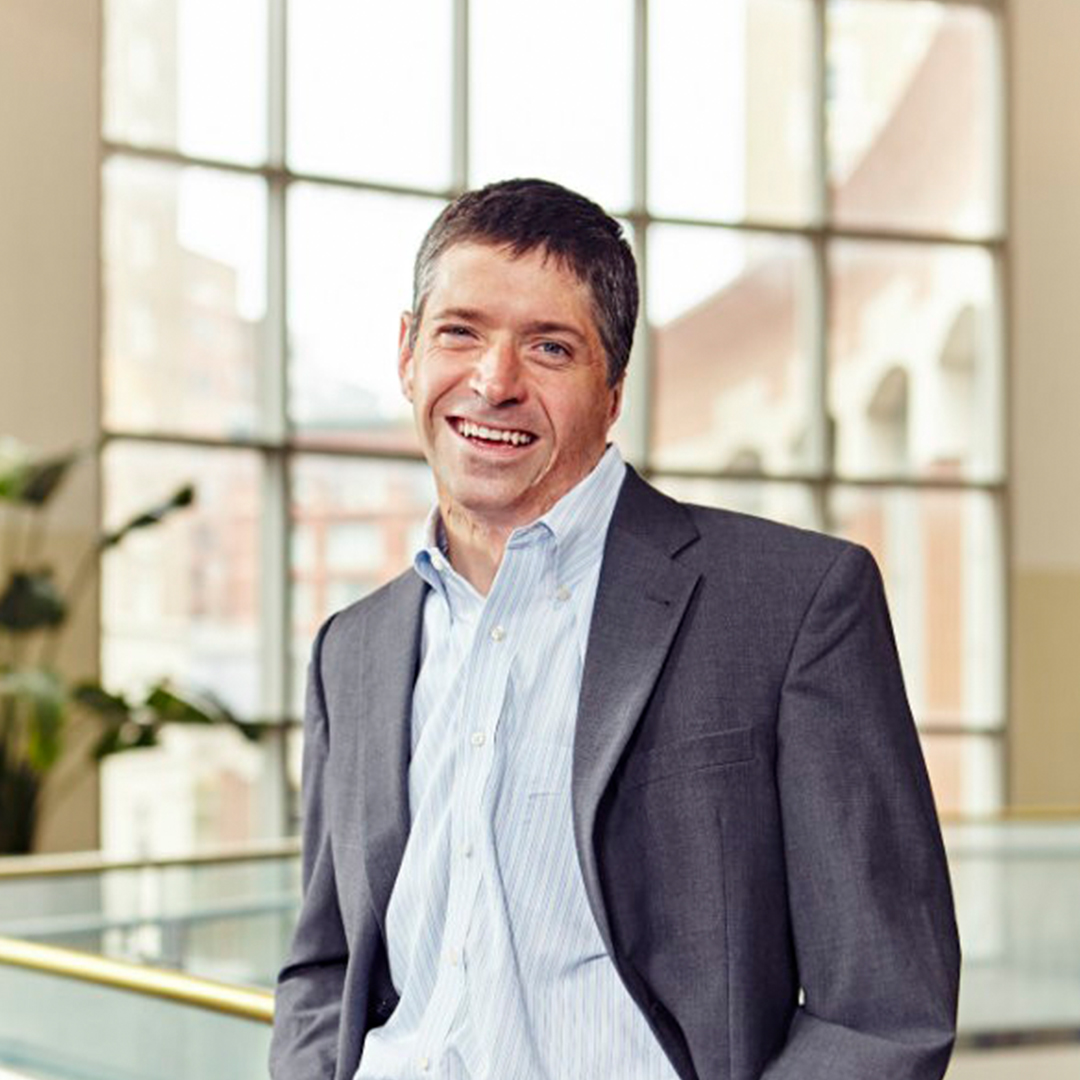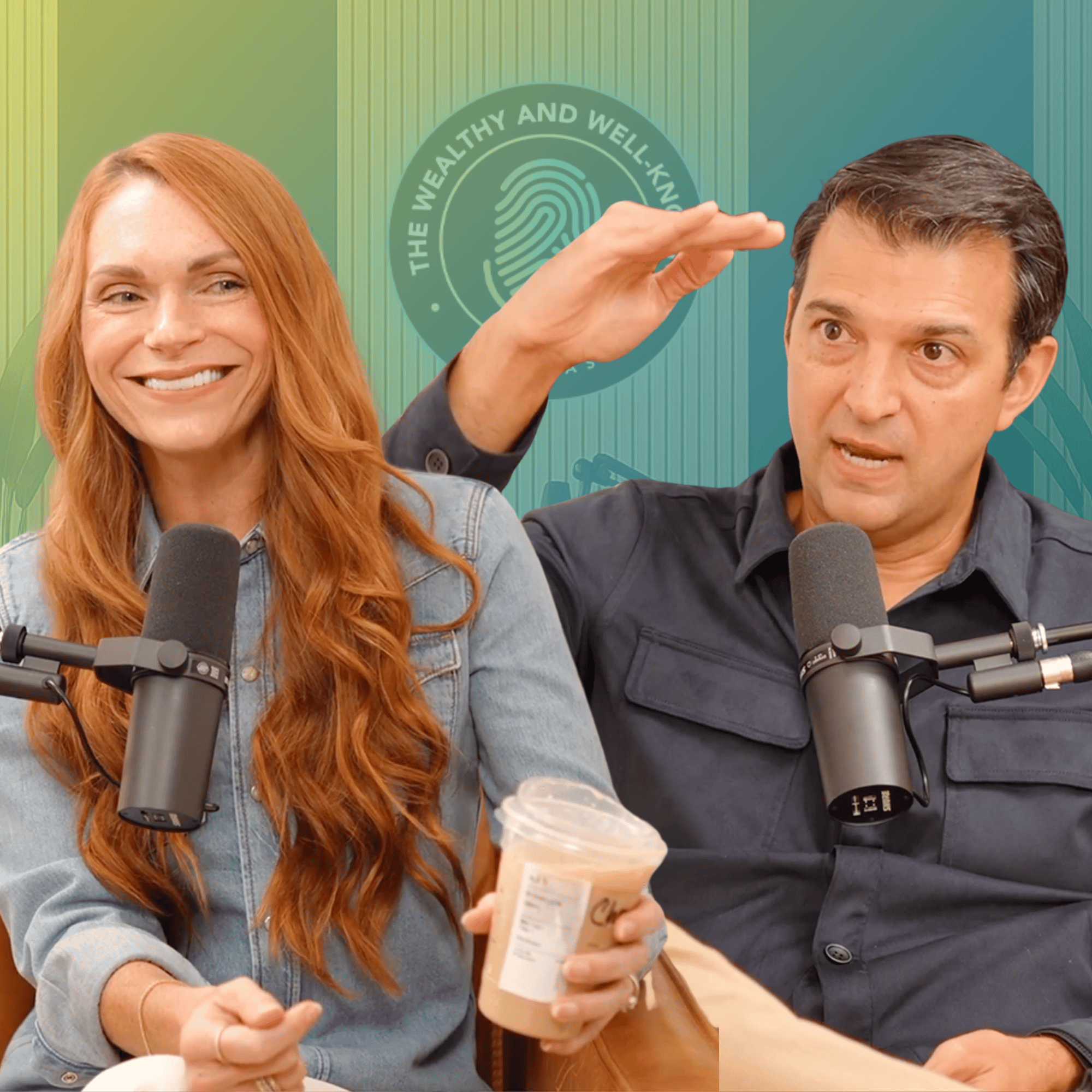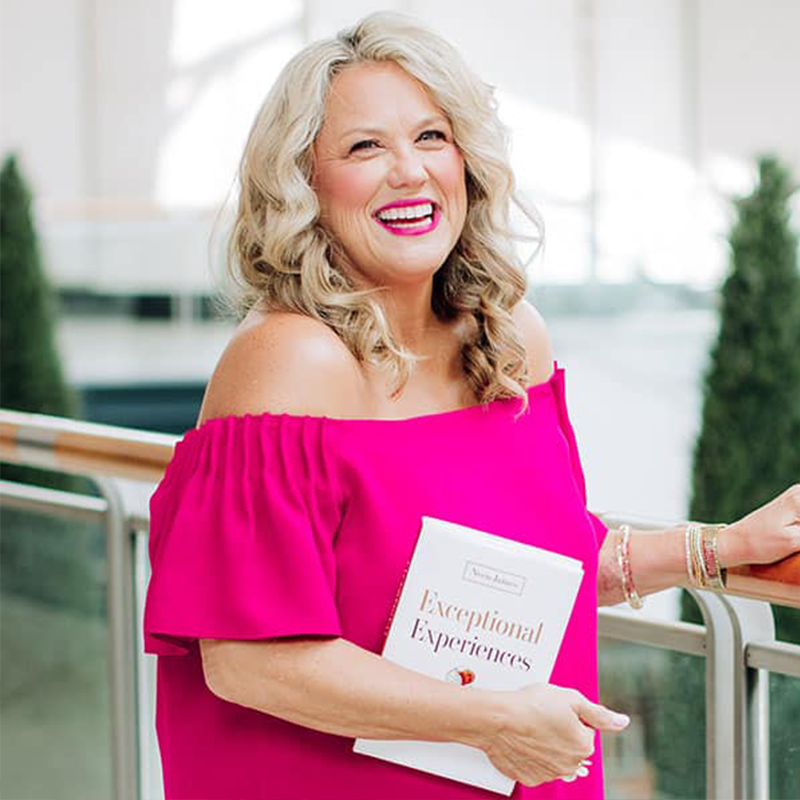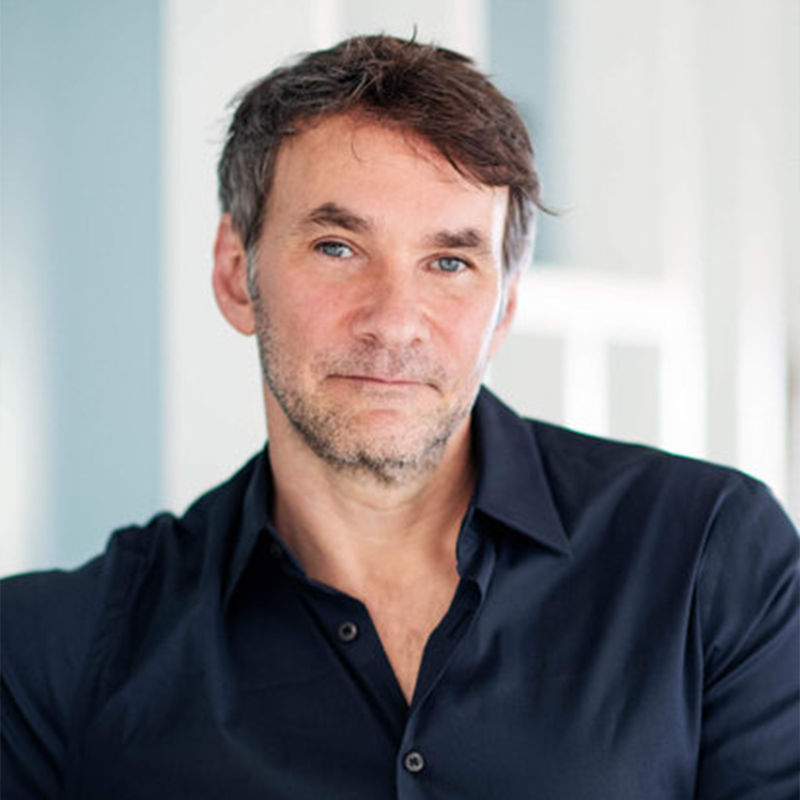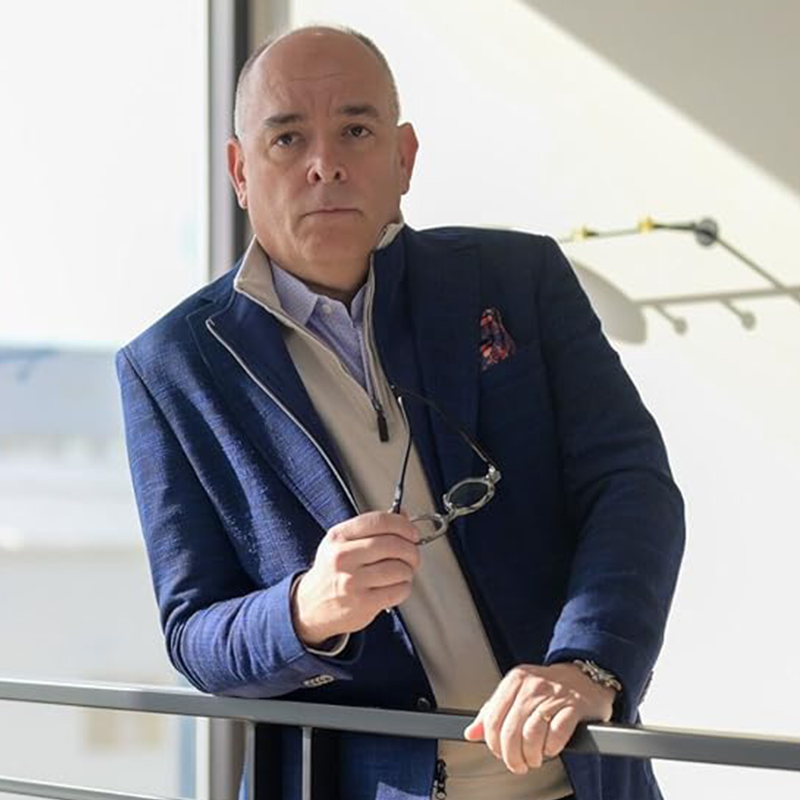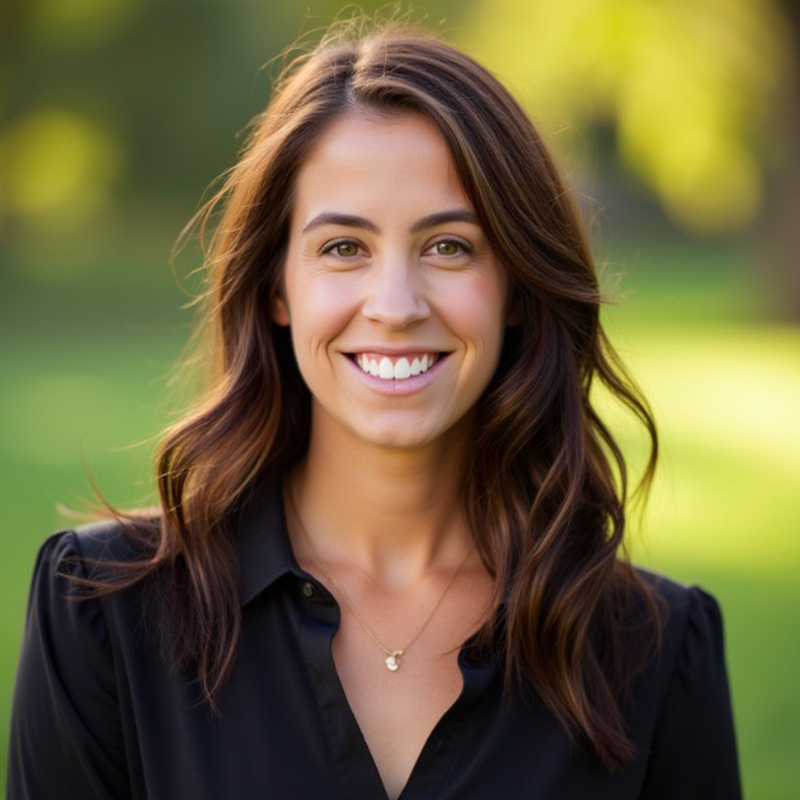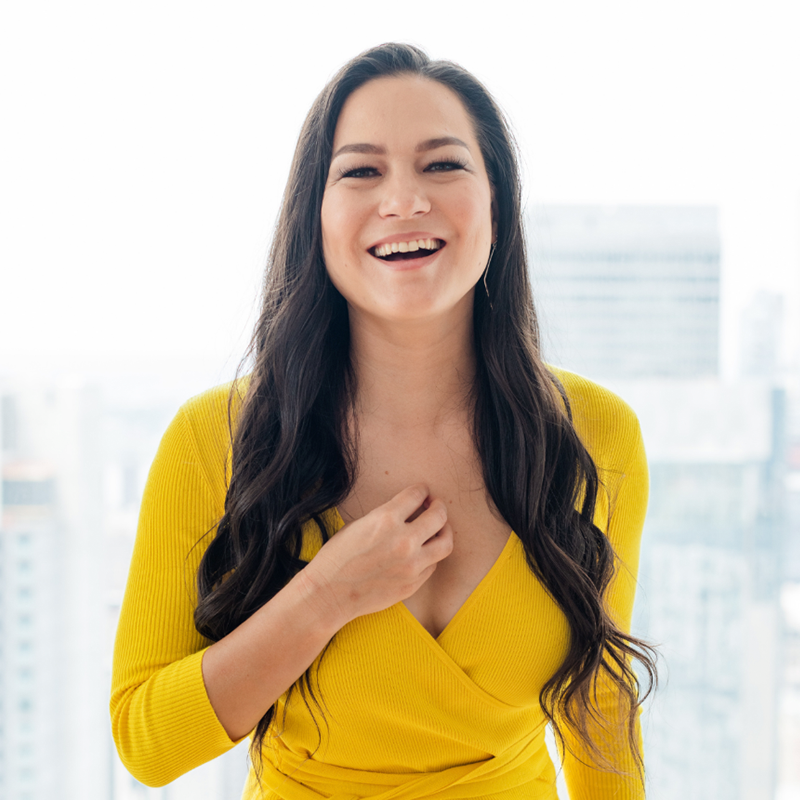Speaker 1: (00:06) [Inaudible] RV: (00:06) Hey brand builder, Rory Vaden here. Thank you so much for tuning in to listen to this interview. We are so excited to bring you this information and wanted to let you know that Hey, there’s no sales pitch coming from anything that we do with. This is all our value add to you and the community. However, if you are somebody who is looking for specific strategies on how to build and monetize your personal brand, we would love to talk to you and we offer a free call to everyone that’s interested in getting to know us and is willing to give us a chance to get to know them and share a little bit about what we do. So if you’re interested in taking us up on a free strategy call, you can do that at brand builders, group.com/summit call brand builders group.com/summit call. Hope to talk to you soon on with the show. RV: (01:03) Hey, you’re about to meet one of my very dear friends and a man that I absolutely love. His name is John O’Leary, and he’s also one of the busiest professional speakers you know, in the world today. Although the world of professional speaking is changing dynamically, which we’ll talk some about, but if you don’t know John, he was in a very serious explosion with a five gallon gas tank when he was nine years old and he was burned on a hundred percent of his body. Over 80% of those burns were third degree. And now he is one of the most booked inspirational keynote speakers in the world. He’s the bestselling author of a book called on fire, seven choices to ignite a radically inspired life. He has a new book that is called in awe, which is a followup to that. And we just were sitting around chatting and it was like, man, we gotta get you back on the show to some talk, some shop and talk through a building a keynote business. So John, welcome to the influential personal brand. JO: (02:11) Rory Vaden. Thanks for being my friend. And on most podcasts when I hit record, we started going right away. You and I had 49 minutes before we hit record just to talk. So we really are friends first and foremost. But I’m glad to be on the podcast. RV: (02:26) Yeah, well that that is for sure. And you know this, cause I sent you the video that Jasper has been learning all about fire and every night he’s like I watched John, I watched John and so your, your, your story’s inspiring. Even to our little three year old man and just helping him, you know, learn about fire and gratitude and all that. So I, you know, I love you man. JO: (02:49) Well I love him. He’s a cute little guy and I think you learn about fire, you learn me something, you stay away from when you’re a kid, but as you get older you got to figure out how to harness fire. And that’s what I’m excited about talking with you during this podcast. Like how do you go from being repulsed by something or being driven by fear to being inspired and motivated to do something bigger in your life. And that’s everyone of your listeners. That’s what they’re striving to do in their own words. RV: (03:18) Yeah. Well, and so tell me about your, tell me about the, your, your keynote career. Like how did you go from, okay, so this burns happens when you’re a kid and a lot of people that are listening, you know, they, they, they want, you know, that that’s part of what they aspire to is go and, Hey, I want to stand on stages and, and inspire people. And so you’re, you’re one of those stories that just, you have an incredible story and You know, tell us how did you kind of move officially into professional speaking JO: (03:54) Haltingly awkwardly and painstakingly slowly. So that’s the truth. And I think it’s most of our truth for those of us who had at some point or another, made it in front of the stadiums and the auditoriums and the Rotarian clubs. It takes a while to elevate from where you are to where you want to go next. But what you need to know is it’s possible. It is absolutely utterly possible. There’s been many who’ve done it. So the best way to achieve success is to follow those who’ve done it before you. And for me, Rory, I got burned at age nine. The great goal of my life was not to be an international speaker, but to be ordinary. So my desire from age nine until about 28 was to fit in, which meant at age 11 I was playing soccer at age 16 I was trying to find a six pack of beer to split it with my friends. JO: (04:44) I was trying to be funny, I was trying to be cool. I was trying to fit in like everybody else, which meant also I was trying to be who I really wasn’t. And I did that for the majority of my young life. And then at age 28 a third grade girl scout asked, mr John. That’s me. If I would speak to her troop and man I, I’d never spoken before publicly, I had never told anybody how I got burned. I had no idea how to string a couple of sentences together or how to build a database of potential clients. This was not the goal, but in life, when an opportunity knocks, I’ve always said yes, whatever that thing is. Even if it’s helping a friend move on a weekend, my answer is yes. I just try to live in yes. And so I said yes to this little girl. I planned this talk for probably, I’m not exaggerating, 40 hours to deliver a talk to three third grade girl Scouts. JO: (05:40) And when I delivered, I bet you will be so underwhelmed by this. I looked down at several note cards. I never looked up and that’s my first talk. One of the fathers in the room was a Rotarian. He asked if I would speak to his group and I said yes. And then one of the members from that group was a Kiwanis club. So in year one I spoke a grand total of three times was not even paid with a box of Samoa. So I got no cash. You know. You did get some MOAs or no, I got nothing. No Do-sey Doe’s no Thin Mints, nothing. I got maybe a free lunch at a rotary club and then year two happened. I spoken maybe eight times, Nope, no cash, maybe a gift card to a shell gas station when I was still open. And then year three, it started to become a business. JO: (06:29) It always had been mission led. It had always been yes, led, but it all of a sudden began to take on the underpinnings of an actual business. I hired my first employee, I borrowed against our home actually to pay her salary. And this woman named Deanna and I started building this thing up from the ground floor and we delivered 60 keynotes in year three in the 14 years that have followed. I’ve spoken two thousand times, 50 States, a couple dozen countries, a couple of million people live. And a couple of cool things have grown out of that. But it has been a wild whirlwind of just saying yes to the next audience in front of you and showing up with everything that we had to inspire the people in the room, not to realize how great I am. Cause there’ll be bored by that, that message, but by how great they are. JO: (07:20) So how did you go and I wanna I want to talk about covert and how that’s affected your business and the like what your mindset is going in into some of this and a little bit but, but I mean to go from eight to 60, that’s a lot in that was really like your first year going after this. So, so what did you guys do then and how much were you charging and like how did that, like that, that, that, that was a real business, which you took a real risk. You took the loan, you got a heat lock. It sounds like you got all he lock and started the business. A hired your first person. Was she just out there emailing people and calling them or what was happening? Yes, to both. So I brought her on after already probably booked about 20 that year, add about averaging $1,500 a keynote or something like that. JO: (08:16) And so there was a little bit of cash coming in the door, but she was asking for more than I’d booked in the entire year. And by the way, I’m married, I have a mortgage, I have one child and another one on the way. And so this is not like, well, it was my part time gig and I was independently wealthy. Neither of those things were true. I had to make this thing work, which is also one of the reasons I think, in fact, it did work. We had to make a go of this thing. We better figure this thing out. And we were motivated not only to stay out of the broke house, but to keep people alive, keep people moving forward, make them recognize how beautiful their life is and their calling to do more for others. So we started off speaking for free. JO: (08:56) I’m begging you guys, if you’re just beginning and you’re just listening to Rory Vaden today for the first time and you’re thinking you want to deliver a message on a platform someday, don’t be so arrogant enough to think that you’re, you need to be paid right off the bat. There is a benefit to going into school houses and synagogues and churches and rotary clubs and serving. Many of these people that you serve on the front side will become your advocates downstream. And so even when we were just kind of showing up to love, I’d still walk out with everybody’s business card in the room and I would still Rory Vaden following your, your process man, I would still follow up with emails. We would still begin sending out a monthly at that time newsletter to encourage them to keep moving forward, but also to remind them that there’s a guy named John O’Leary who alive and well and ready to serve when they are ready. JO: (09:40) So even in the early stages of this business, when there was not a business model, so to speak, there was the beginning of a database, there was the beginning of a followup and there was the beginning of a long term dream of what it could look like. RV: (09:54) And, and, and is that, I mean, over the next 14 years, has that changed much? I mean does it basically just the same thing, build a database, go out and speak, contact people get like what? How has that change and were there any big breaks? Like were there any big moments where you said, Oh, when this happened. That really catapulted my career. RV: (10:16) So it’s a great question because you live this every day, your life. What I’ve always found at least in the first 15 years maybe I’ll find something very different than the next 15 is that the idea of big breaks is, is sometimes exaggerated. I’ll book a huge event in front of tens and tens of thousands of people and the right people in that room thinking now I’ve made it and the following day I wake up and I’m really not that changed. I’ll book a huge huge radio show or television show or podcast boom baby now we got it. I’ll create a book that is worthy enough to be a New York times bestseller, becomes a number one New York times bestseller and still I haven’t made it. And so you have a beautiful quote about when the rent is due. It’s like it’s due everyday man, get up and pay it again cause it is due every single day. We’ve had a lot of breaks but but none of them that have actually made us overnight successes. What have made us in quotes, overnight successes is showing up and going to work the following day. JO: (11:18) And so some of the things that have grown in the last 1415 years is the database. When you collect information over the course of years, we now have a couple of hundred thousand people that we we’ll get to love on every single week. Another thing that has happened is we started getting into social media. So now we have I think 300,000 or so followers online and then you ask yourself, well how can I serve them better? What if they had a really cool life giving book? And so I wrote a book called on fire. It became a number one national bestseller. It’s still selling now four years after it’s released at a high level because it’s about reminding people not only that they matter, but here are the next steps that you can take to impact. Even more lives through yours. After that release, we said, how do you touch more lives? JO: (12:02) We created the live inspire podcast. Rory Vaden has been a guest on this thing. We have a hundred thousand plus listeners every single month that checked out the millions of downloads. Now 2 million over 2 million downloads of a million downloads, and it’s awesome. It’s a cool way to get in front of people, not only the mass audiences, but it allows you to reconnect with a guy like Rory Vaden or a guy like John Gordon or a lady like Renee Brown or you. You name the person and now you get to meet these people one-to-one here, their stories. But my kids and I, cool story. We were watching Apollo 13 and they wanted to know when the guy died. This guy played by Tom Hanks when he died at the movies in the sixties so when did he die? It turns out commander Jim Lavelle lives in Chicago. JO: (12:45) He’s 94 years old. He’s been married for 70 years. He’s the world’s greatest failure just about everything he did in life. He failed except for the fact that he kept moving forward. And so he even failed to go into the moon except for the fact that they figured out how to Slingshot around the moon and come back safely. So one of the great stories I think of our society bringing this guy back with technology foreign figure to a cell phone and yet commander Jim Lavelle is alive and well in Chicago today through the efforts, not only of him and his two person crew, but through what we were doing in Houston. Yes, they had a problem with they redeem the problem. RV: (13:23) That’s amazing. That’s such a cool, that’s such a cool story. And I, I I mean one of the things that has always just blown me away, and this is, I guess part of what I would hope for people to capture from you is just like, you have such a genuine heart to serve. And we were, we were talking about some of the Covid stuff going on and how it’s affected your business and you were just, you were telling me that, you know, I don’t want to have the big high price thing because like my guy is the ups guy and the nurse and the teacher and the stay at home mom. Like your, your, your people are the people like just the, the, the people and how have you always had that heart to serve? Cause I have no doubt whatsoever that that is a huge reason why you have built such a successful keynote career. But I just, I guess I have a hard time understanding how do you go from almost dying just trying to just barely survive and just be normal yourself. Right. How do you go from that to where it’s like I can barely live. I don’t, you know, you lost, you know, a big portion of your hands. Right? And to, all I do in life is care about other people. Like that’s a big leap. JO: (14:39) So let me begin answer the question by starting with the end in mind. For the listeners that just want to grow their business. I can’t tell you how many speeches that have been referred to me through the AV guys. These are the folks who wear black shirts and black pants in the back of the room. That big time speakers like myself ignore because they’re unimportant. They’re only there to get the video up on the screen and the sound of the room, and besides that, they’re useless except for the fact I really love these guys. I like, I love them. And so I hang out with them. I’ll launch with them, I’ll hug them on the front side, hug them afterwards, thank them for their work. Stay in touch longterm, they refer me speeches because I don’t do this on purpose, but those guys then go on to the next venue the following day and if someone sinks, they’re like, by the way, you should meet a guy named John O’Leary. JO: (15:26) Mike, he’s so genuine. He blows away the audience. He gave me his card. In fact, I was texting them last time. Here’s this, here’s the number. And so we get, we get referrals all the time from AV guys. I received three referrals from guys driving town cars. These are the guys like why would you ever talk to a guy driving you, cause they’re completely unimportant except for the fact that I believe in the dignity of human life. And I see the guy in front of me having a far better story than the one I’m going to share from a stage later on. And so I’ve heard so many amazing stories, exchange cell phone numbers with these guys and then have been referred to future clients because of the chauffeur. And so is there an ROI in love? Yes. Okay. Yes. But your real question is why, why do you like people? JO: (16:10) Number one is I recognize that my life is a miracle and that’s not because I got burned and survived the unsurvivable, the likelihood of us being in the room, if you just look at the biology and we’ll have an after hours with Rory Vaden and chattel there if you want to get into the functioning of how we were reproduced into this position. But here’s, here’s the biology man. When you add up your mom and your dad and the likelihood of their DNA becoming one turn into Rory Vaden, the math is less than one in 400 trillion. So the very fact that Rory Vaden is in the room is one in 400 trillion just from mom and dad coming together. We were miracles and we get, we get bored by life and we act like COVID. 19 will be the end of us or recession’s going to break our back or losing a third of our portfolio has ruined what we wanted to do later on in life. JO: (17:01) And what I need you guys to do, listening, ladies listening, is to recognize that you’re made for so much more than this. Like you are a gift. You are miracle. You need to act like it. And once you can act like you can also recognize that the dignity of those around you. So Rory, I’m here because a whole lot of people showed up for me, but maybe the most important person in my story was the janitor. And this is the guy who came into my room as a kid when I was nine. He did his job, he did it for about minimum wage, and he did his job for the next five and a half months while I was treated in burn care. And if he had not done his job at a high level, there’s a high likelihood that I get some small little infection. JO: (17:43) COVID 19 as a reminder, it doesn’t need to be a missile that claims your life. It can be something you can barely see under a microscope that can claim your life. This guy’s job is to protect a little boy from that. His name was Lavelle. I believe he saved my life in the hospital. And I’ve never forgotten the fact that there’s no such thing as little jobs like that. They all matter and an epidemic. And now a pandemic like COVID 19 reminds us of the profound value of grocery store workers and truck drivers and nurses and custodians like their work matters. We just for too long have overlooked it. JO: (18:20) Wow. what a perspective. So, so what is going on with your business? How has [inaudible] affected you and what are you doing about it? And how are you thinking about it? Awesome. Gosh, there’s a lot of questions right there. So from a societal aspect, it’s breaking my heart because I recognize that people’s portfolios have been wiped out to a degree that many of us have become unemployed, that many of us have lost their lives and lost lost loved ones. And that help. The healthcare system itself is incredibly taxed during this time. So just as a citizen of the world I ache, I really hate it. It makes me sad thinking about it. But I also remember a conversation that I had with my grandfather, and this will get me emotional too, cause he’s my hero. My grandfather served in world war II. He was in the Navy for three years, came all married sweetheart, built an incredible life. JO: (19:19) And after September 11th we had lunch together on the 17th and I’m writing this story about this right now. So in September 17th grandpa and I met at a little pasta place down the street from his office. He’s near the end of his life. He’s certainly near the end of his working life. And I learned over lunch that he had just invested a large chunk of his savings into American airlines and United airlines, right as the market has come back online. And everyone who’s got any savvy at all knows what’s going to happen to the airlines after the bell rings and we get to sell or by no one’s going to be buying these two airlines. They’re the ones that collided into buildings and into th th th they’re gonna fall dramatically. And grandpa Bobby bought them heavily. So I say grandma, grandpa, I think he kind of made a mistake man. JO: (20:11) And he took a bite of his pasta then a sip of his tea in front of them and he said, John, do you know that they refer to our generation as the greatest generation? I just said, yeah, I’ve read that book Gramps. And he said, you know why? I’m like, tell me. He goes, it’s not because we survived the great depression and it’s not because we went off and we fought in world war II. And it’s not because we were the most productive group of all time for humanity. They built the nations. He’s like, let me tell you what it was. We never forgot the lessons that we learned along the way. And I think that’s really important to remember during this COVID 19 pandemic. What made the greatest generation, the greatest generation, I think back then and still today, is not what they did. JO: (20:53) It’s that they were made better because of what they endured. They were made better because of the depression. They were made better because of world war II. They were made better because of their great productivity. And so when this crisis happened on nine 11 six days later, when the markets reopened, he’d still remembered what his, what he’d lost, but also was taught during the depression, during the war and during the decades that followed. And so it’s why my grandfather, as a citizen was making an investment into organizations that he wanted to be around longterm. So what am I thinking about right now during COVID 19 I’m thinking about the lessons that I can learn right now that we can apply longterm. I don’t want to forget man, what I know to be true, Rory, this too shall pass. I don’t know if it’s next month or in 16 months, but sometime the pandemic passes, sometimes we’re back at work sometime the markets return and my, my great concern is we’re going to forget what we’re learning right now and I want to be like my grandpa. JO: (21:48) I want to be part of the next greatest generation that did not forget the lessons being taught during COVID 19 so what I’m remembering right now is I’ve had 41 dinners at home with my wife. That’s never happened since we’ve been married ever. Wow. 41 nights in a row, tucking my, my, my little girl, my three boys. And it never happened. Since I’ve been born, I’ve had 41 lunches. When you and I finished this podcast, I’m going to hang up race home and make them lunch again. 41 peanut butter jellies in a row, man, 42 tomorrow. But man, rather than cursing the fact that I can’t get on flights, personally, I’m extraordinarily grateful for this season because I know it will pass. I know it will pass. So that’s what I’m doing personally, professionally, I’m trying to pivot into the storm. I’m trying to raise the sail high and figure out what we can do digitally through the profound blessing, the technology to influence clients and influence last longterm starting today. And so this big ship of ours here at live inspired are pivoting into what we can become. And by the way, we would not have done this had everything in life gone perfectly the way we planned, but, but now we have this beautiful opportunity to become so much more significant and life giving than what we would’ve done if John O’Leary was on a plane today speaking to only a couple hundred or only a couple thousand. Now we believe we can influence millions of lives starting right now. Why wait? RV: (23:16) I love it man. I absolutely love it. Well John, where do you want people to go if they want to connect with you more and just kind of follow your journey and see what you’re up to. Of course, in all that book, that book is out like you all. Can you, can he, you can just feel this man’s heart and it comes through in his writing and so excited for y’all to get your hands on this new book. But where else did you direct people, John to connect with you? JO: (23:43) So thank you for your compliment. Like it is all hard. I haven’t been through media training. I probably said the wrong thing all the time, but it is heartled man. So where they can go to learn more about the book and about who John is as good a readinawe.com. So that’s read in awe.com you’ll learn about the book, you’ll learn about John, you’ll have the links to social media and the podcast. But the reason really I’m driving folks there is when this whole thing broke out, we recognize that there would be some collateral damage. And last year, Rory, 1.5 million Americans attempted suicide. And this was one life was awesome. You got nothing to complain about, no pandemics, no reset, nothing man. One and a half million. So on the front side of this, our team got together and said, how do we invest in people? And so we built a 21 day campaign. So just love them and encourage them and to remind them that they’re not alone and that there is a next step. So there’s a cool 21 day challenge somewhere on that website. sign up for it. You’ll benefit from it. You’ll realize you’re not alone. And you’ll also realize your best days remain in front of you. RV: (24:54) Yeah. John, buddy, I just, I can’t thank you enough for your, your attitude and your mindset and your heart. I mean, I’m sitting here almost in tears myself, just like being encouraged, being reminded of the importance of gratitude and then also just experiencing you living it through your life and through your lens. It’s, it’s so impactful to me and to, to everybody. So thank you for what you’re doing. I hope you are relishing the time with the family and you know, the world is, the world is still very much, very much a need of John O’Leary. So I hope you keep, keep inspiring virtually and digitally through this time. And we just love you and we wish you the best. JO: (25:43) Let me say one thing, man. I twice now, the publisher of my books have sent me back the first edition with my picture on the front of it and what I’ve always sent back to them as a reminder, read the book and then redo the artwork of the, of the book because that’s not it. And so on the first one on fire, there’s mirrored letters of flames that if you look at it just right, you actually see your picture of Rory Vaden and whoever else is reading on fire. They’re going to see their little image in the letters. And if you read on in awe, there’s this big brilliant blue sky with clouds floating past with a red kite flying high, reminding us what it was like once when we were kids and how we can return to that to day to day. And so you said the world needs more John O’Leary? I don’t. Thank you. I think the world needs more people who are fully alive. And do your exhibit a of that. So Rory Vaden keeps shining the light, keep living it out. And thanks for being my friend. Of course, brother, much love God bless you. Feel likewise. God bless. See you buddy.




